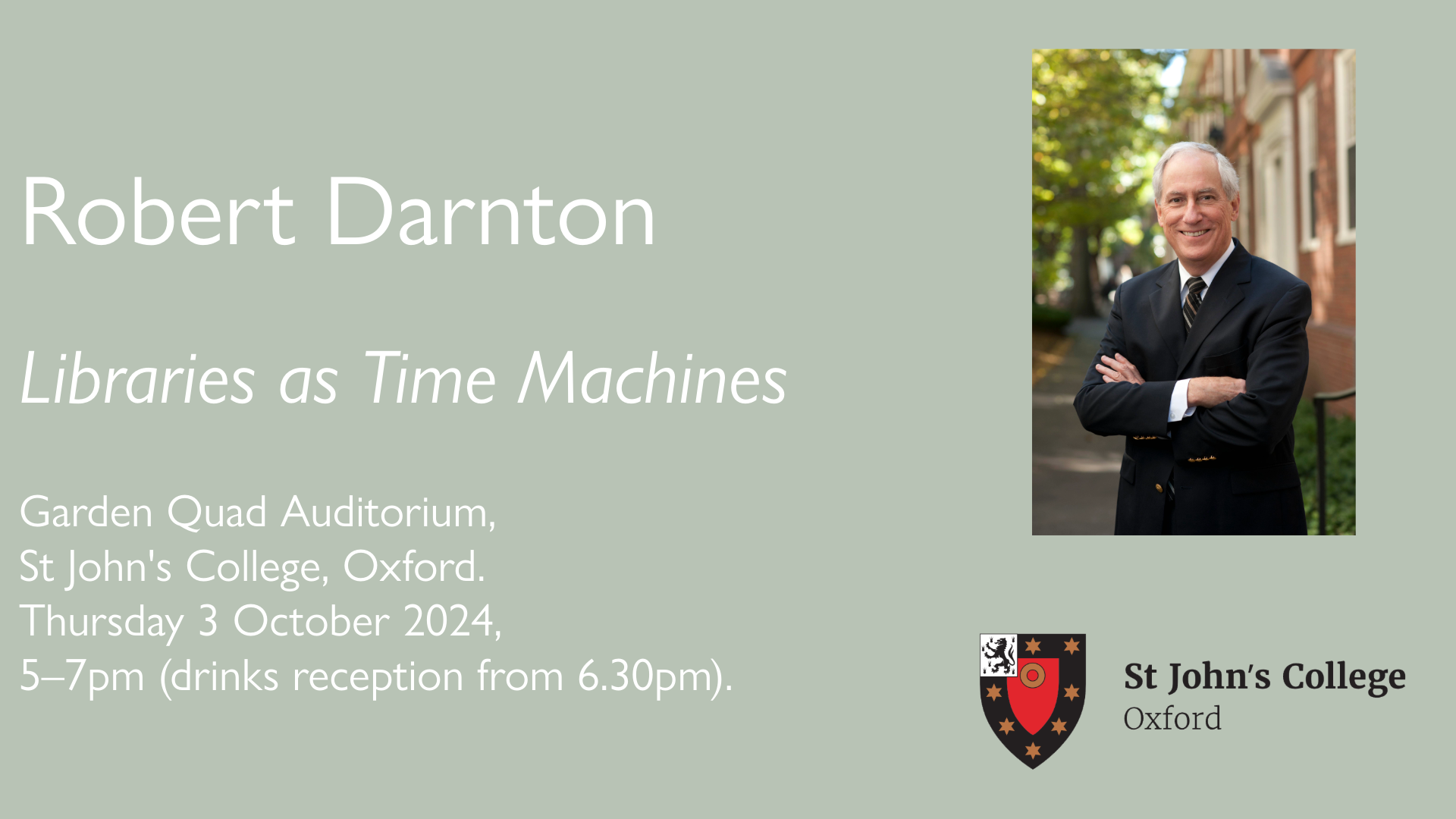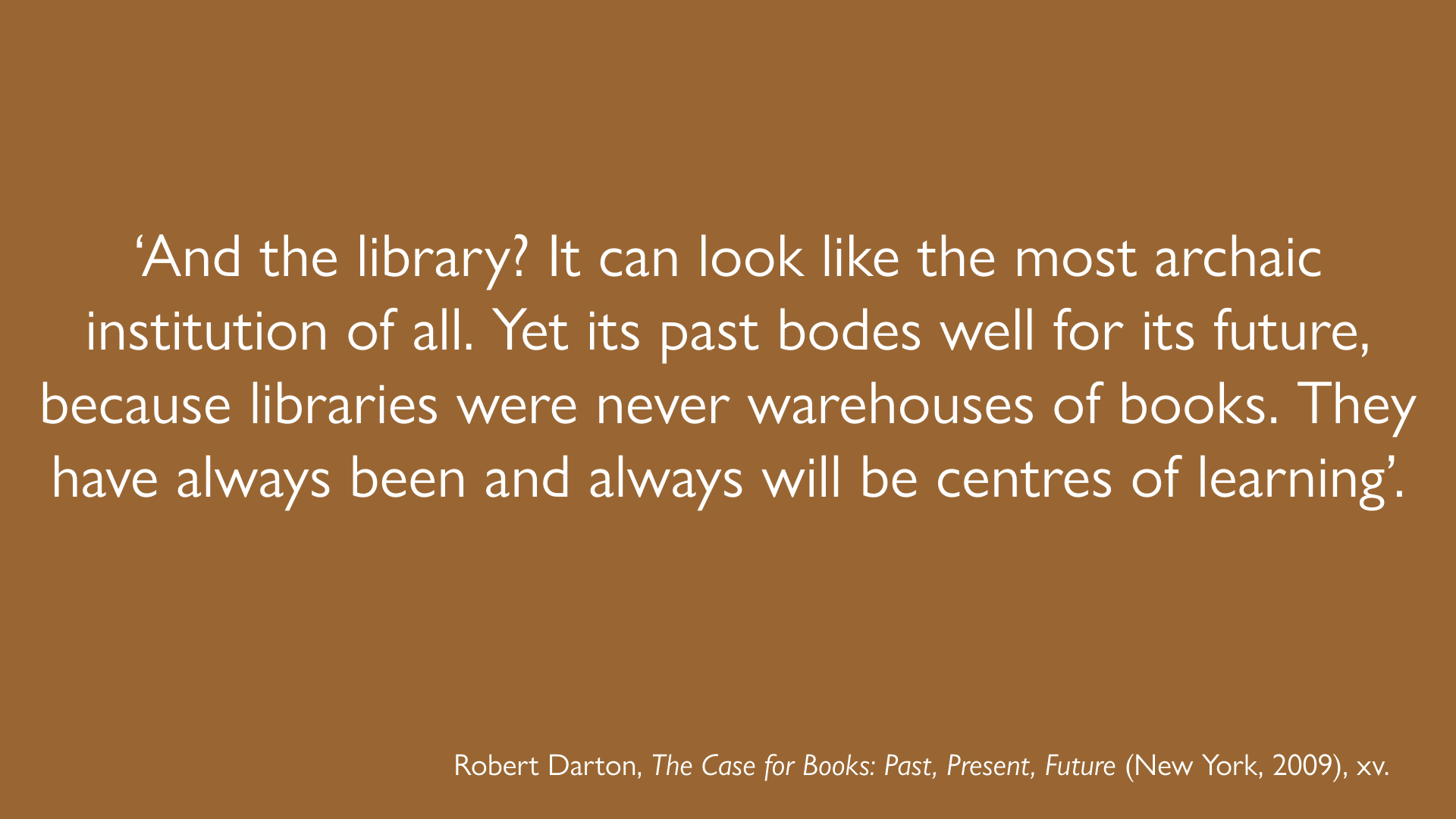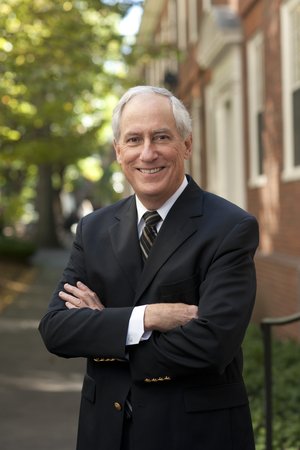'Libraries as Time Machines': lecture by Professor Robert Darnton
- Date 3 October 2024 - 5.00 p.m. - 3 October 2024 - 7.00 p.m.
- Location Garden Quad Auditorium, St John's College, Oxford, OX1 3JP

Robert Darnton
Robert Darnton was educated at Harvard University (AB, 1960) and Oxford University (BPhil, 1962; DPhil, 1964), where he was a Rhodes Scholar. After a brief stint as a reporter for The New York Times, he became a junior fellow in the Society of Fellows at Harvard. He taught at Princeton University from 1968 until 2007, when he became Carl H. Pforzheimer University Professor and Director of the University Library at Harvard. His outside activities include service as a trustee of the New York Public Library and the Oxford University Press (USA) and terms as president of the American Historical Association and the International Society of Eighteenth-Century Studies.
Among his honors are a MacArthur Prize Fellowship, a National Book Critics Circle Award, election to the French Legion of Honour, the National Humanities Medal conferred by President Obama in February 2012, and the Del Duca World Prize in the Humanities awarded by the Institut de France in 2013. He is also a St John's College alumnus and Honorary Fellow.
He has written many books, including The Business of Enlightenment: A Publishing History of the Encyclopédie (1979), The Great Cat Massacre and Other Episodes in French Cultural History (1984), The Forbidden Best-Sellers of Prerevolutionary France (1995), Poetry and the Police: Communication Networks in Eighteenth-Century Paris (2010), Censors at Work: How States Shaped Literature (2014), A Literary Tour de France: the World of Books on the Eve of the French Revolution (2018), Pirating and Publishing: The Book Trade in the Age of Enlightenment (2021), and The Revolutionary Temper: Paris, 1748–1789 (2024).

Libraries as Time Machines
One of the most important tasks of historians is to understand how people thought in the past, but the historians’ own way of thinking can prevent them from getting a clear view of another mental world. Libraries, especially rare book libraries and the books themselves, offer a way of overcoming this barrier. By reading old books in the restored old libraries of St John’s College, we can imagine ourselves inhabiting the past. Of course, we need something more than our imaginations. Margin notes made by readers long ago can help, and there are techniques of answering specific questions, such as what was the first book printed by Gutenberg and what is the most trustworthy text of Shakespeare's plays. We even have enough evidence to know something about the ancient library of Alexandria and about the first “books” ever written. Experience in libraries today also helps us predict something of their future. Google Book Search raised the possibility of digitizing all the books in the world –– and also the danger of monopolizing access to a universal digital library. Is such a library an impossible dream, or can it be created within our lifetime?
